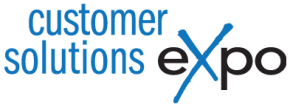Call for Speakers
Important Dates
| Deadline for Submissions | Closed |
| Notification of Acceptance/Rejection | November 16, 2018 |
| Conference | April 29-May 1, 2019 |
| SpeechTEK University | April 29 & May 1, 2019 |
Please note: We are especially interested in proposals for panel discussions on these topics:
- Social and ethical issues associated with speech and AI
- Voice user interfaces for the Internet of Things
- Test and evaluation of voice user interfaces
- Using emotion in voice user interfaces
- Using speech with other modalities
- Future of speech technology
- Other interesting topics related to speech and AI

Where AI and Machine Learning Come to Life
New uses of speech technologies using AI and machine learning are changing the way people interact with companies, devices, and each other. AI and machine learning dramatically improves speech recognition accuracy, reveals customer patterns and trends, and enables new applications and services.
Share your story about how speech is making a difference for your customers or organization at SpeechTEK 2019. We favor proposals focused on unique and innovative themes supported by real world examples, designed to inform and expose the audience to new ideas. Avoid product pitches.
Target Audience
SpeechTEK attendees include C-level executives, directores, IT decision makers, customer service managers, customer experience designers, interaction designers, speech solutions managers and developers, anyone who wants to learn about designing, implementing, and deploying speech technologies.
Suggested Proposal Topics
We solicit presentations, panel discussions, sunrise session discussions on the following topics. To illustrate the scope of each topic, we have listed some of the possible titles. We encourage these and other titles that discuss how each technology works, how to implement and use the technology, its advantages and disadvantages, and how it solves your business problems.
Speech and Customer Facing Apps
- Conversational user interfaces: how to upgrade your customer interfacing apps to support natural language and conversational user interfaces?
- Usability: how to test and evaluate the effectiveness of user interfaces involving speech technologies
- Smart speakers how new devices (e.g. Apple Alexa and Google Home) can support sales, assembly, diagnosis, and repair services for your products
- New technologies: will your customer-facing apps can benefit from emerging technologies such as synthesized lifelike avatars, augmented reality, visual IVR, blending self-service and assisted service, emotion extraction, etc.
- Digital experience: should you improve your user’s digital experience by upgrading with mobility, multimedia, multimodes, and omnichanel technologies?
Speech in Business
- Smart analytics: how to transcribe your voice data and apply AI to detect user trends and patterns to improve your business operations.
- Speaker identity and data security; how to prevent and detect fraudulent access to your systems, how to use speaker identification and verification.
- Business apps: How to use diarization to capture and search meeting transcripts, how to use machine translation to extend your customer base.
Developers
- UI: design strategies, guidelines, and best practices for designing speech user interfaces.
- New vendor software products: how to evaluate new conversational platforms, frameworks, tools, templates, and cross-platform code generators
- Micro services: should your organization benefit from a micro service architecture for integrating online speech and non-speech services.
- Speech-enabled devices: what new speech enabled devices and appliances will appear on the Internet of Things, how to manage and control them and keep them safe from fraudulent access.
Other
- Social robots and conversational toys: what can they do, how can they assist users, how will they impact family life
- AI and ethics: how advances in AI affect privacy laws, liability, standards, jurisdiction, job elimination, and other ethical issues.
- New applications using speech technologies
- Market analysis
- Other topics?
4 Tips for Submitting a Good Proposal
- Submit your proposals early! We evaluate proposals as they arrive, in the order in which they are received, so early proposals have a better change of acceptance than proposals submitted near the deadline.
- Think about who you want to address and write your proposal for a specific segment of the SpeechTEK audience.
- Be as specific as you can. We prefer proposals with clear, precise themes and specific examples over proposals that deal in vague, high-level ideas.
- No sales pitches. Attendees dislike listening to product pitches in conference sessions. We will not consider any proposal appearing to be sales-oriented.
The Fine Print
- You may choose among a number of different presentation types, including 45-minute presentations, panel discussions, sunrise discussions, and case studies, 45-minute boot camps (targeted to novices), and 3-hour SpeechTEK University courses. We recommend that you choose the one that best fits your topic, although the conference chairs may ask you to modify your session type.
- You may submit any number of proposals, but the participation of any individual will be limited to no more than two sessions.
- We discourage joint presentations by two or more speakers. A presentation may list co-authors, but only a single presenter. An exception is case studies, where the project manager and the technology vendor may co-present.
- Speaking slots are assigned to individuals, not to organizations. If an individual must cancel their presentation, their slot will be reassigned by the conference co-program chairs.
- If your proposal is accepted, you will be asked to submit a PowerPoint presentation. All presentations should have no more than a single slide describing the author’s affiliation, products and services, and contact information. Except for SpeechTEK tutorials, presentations will be posted online for reference by attendees.
Thank you for your interest in presenting at SpeechTEK 2019
Jim Larson, SpeechTEK Program Chair



